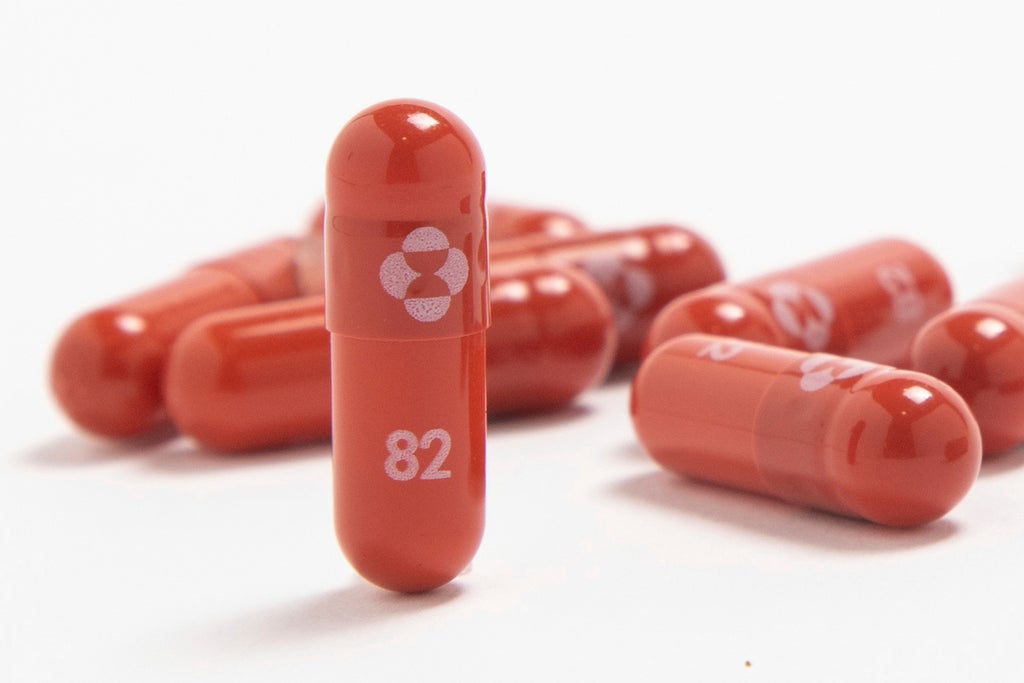
Clinically vulnerable people infected with Covid are being denied access to potentially life-saving antiviral medicine, patients, health officials and charities say.
Around 1.3 million people with underlying health conditions in England have been identified by the NHS as at-risk and sent letters explaining they will be assessed for antiviral treatment if infected with Covid.
The NHS said “tens of thousands of the most vulnerable patients” have received the medication to date, but told The Independent it was “aware of some local issues” in which clinically vulnerable people have struggled to access the antivirals. It comes at a time of record-breaking infection levels.
Patients seeking the treatment, which suppresses an infection to prevent disease escalation and hospitalisation, have reported being turned away by GPs and hospital doctors, while others say they’ve been “pushed from pillar to post” in an attempt to access the medication.
Anthony Nolan, the blood cancer charity, and Kidney Care UK both said they had received reports that Covid Medicine Delivery Units (CMDUs), which are responsible for ensuring antiviral medication reaches patients, were overwhelmed and struggling to provide treatment.
“Weekends are a particular problem and it causes a lot of stress,” said Fiona Loud, a policy director a Kidney Care UK. “We have had reports from people in different parts of the country.”
Paxlovid, molnupiravir and remdesivir are available via the NHS as antiviral medicine. All three have been shown to be effective in reducing the risk of hospitalisation among infected vulnerable patients. Antibody treatment, administered intravenously, is also available.
Under current guidance, CMDUs are tasked with calling and assessing vulnerable people who test positive for Covid. Specialists will review a patient’s condition and clinical suitability to determine if they should receive the antiviral treatment, which is meant to start within five days of a diagnosis.
However, some patients claim to have never been contacted, instead turning to their GPs and local hospitals, who have said they are unable to help. Many have been told to ring 111, which in turn has redirected patients back to their GPs.
Louise Besley said her husband Mark Drewett, who suffers from a rare autoimmune disorder called Myasthenia gravis, was unable to get hold of the antivirals after he tested positive the Wednesday before last.
“Everyone we spoke with agreed that he’s eligible – and yet, nobody is making that happen,” she said. “We tried everything. We went through the local CDMU. They can only send emails, and there was no one in over the weekend.
“We went to A&E on Thursday night for four and a half hours because Mark’s stats dropped. His breathing was bad. But they couldn’t do anything. The whole thing is just a nonsense. It seems like it’s a real luxury, depending on where you live.”
Kidney Care UK said: “The pattern is similar – positive LFT or positive PCR but 111 does not consistently know what to do and the GP is shut. On one occasion reported recently, someone missed out and someone else didn’t get transport so didn’t get the treatment.”
Alex, who has polycystic kidney disease and takes immunosuppressants, was forced to turn to his local MP for help after being “pushed from pillar to post” in an attempt to get hold of antiviral medication.
“I called 111, they referred me to a local GP hub. They agreed I should get them, but they didn’t have authority to help. I kept referring elsewhere, to different medical professionals, but nobody knew what exactly to do.”
After eventually emailing Labour MP Helen Hayes, Alex was provided with the medication four days into his initial diagnosis, but it was “clear that nobody is sure the best way to deal with this. There needs to be a clear channel of communication.”
Henny Braund MBE, chief executive of Anthony Nolan, said it was “extremely concerning” to hear that many CDMUs are overwhelmed. The NHS said all CDMUs “have arrangements for treating patients at weekends”.
Lara Wong, a spokesperson for the Clinically Vulnerable Families support group, said: “Members have struggled to access antivirals, particularly at the weekend. In desperation we are increasingly needing to request interventions from MP’s to secure them. The vulnerable are being left behind.”
Many other clinically vulnerable patients who spoke with The Independent relayed similar experiences of repeated delays, uncertainty and frustration in accessing antiviral medication.
Others have also expressed concern that they are not even eligible to receive the treatment.
Imogen Dempsey, from Colchester, failed to generate an antibody response following her Covid vaccinations and suffers from a variety of underlying health conditions. She believes she faces an elevated risk from infection and should receive antivirals as a precaution.
“We need access to antivirals for everybody that was classified as vulnerable not just a very small subset, which is what the government’s done,” she said. “Even if your immune system is naturally rubbish like mine, the answer is still sorry, no, you don’t qualify.”
The NHS said “tens of thousands” of clinically vulnerable patients have benefitted from antiviral treatment over the past three months.
A spokesperson said the system was “working well for the majority of people” but the NHS is “aware of some local issues and is continuing to support GPs, NHS 111 and hospital specialists” to help patients access “an urgent assessment” by the CMDUs.







